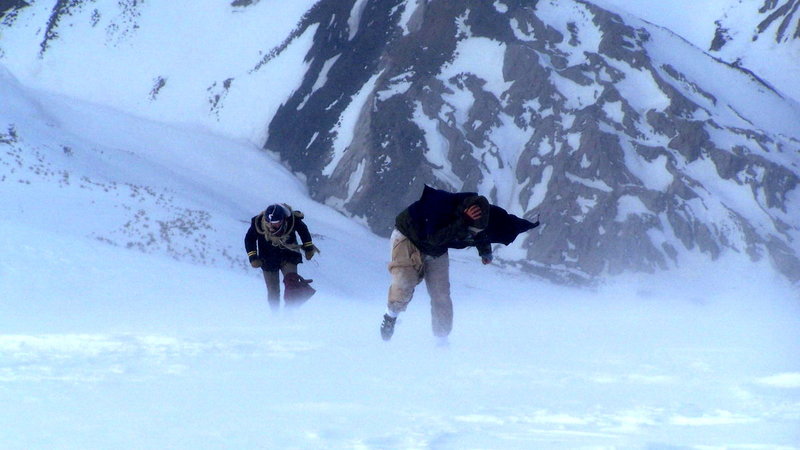This riveting documentary strips away the sensationalism that has accrued around the survivors of the 1972 Andean air crash to reinstate their experience as one of the great instances of heroic human endurance.

A cinematic tour-de-force... a deeply moving film about honour, courage and survival.
Screened as part of NZIFF 2008
Stranded: I've Come from a Plane that Crashed on the Mountains 2007
This riveting documentary strips away the sensationalism that has accrued around the survivors of the 1972 Andean air crash to reinstate their experience as one of the great instances of heroic human endurance. Ten days after their plane crashed in the frozen mountain wilderness, the surviving passengers, most of them 19-year-old members of a Uruguayan rugby team, heard on the radio that they had been given up for dead. More than two months later two of them set out through blizzards and interminable waist-deep drifts, in threadbare clothing, without equipment, hoping to arrange the rescue of their remaining 14 friends. Mixing the testimony of the survivors with vérité-styled reenactment, Stranded renders their ordeal grippingly real. Filmmaker Gonzalo Arijon was a childhood friend to many of them, which may be why they chose to end their long public silence for his film. He doesn't shrink from the grisly details, but shows how these educated, mostly God-fearing young men confronted their situation with exceptional perseverance and a grave understanding of their moral choices. — BG
"Strandedis just as interested in how they survived what came after - the doubts, the shock of a titillated and uncomprehending public fed by sensational news reports... They're not ashamed of what they did, but you can feel their sorrow and sadness at the same time, and it's that contrast – between what they did to live and what they do to live with that – which pulls you in as these graying, everyday men tell the incredible story of the 72 days in their youth when they were going to die far from home." — James Rocchi, Cinematical